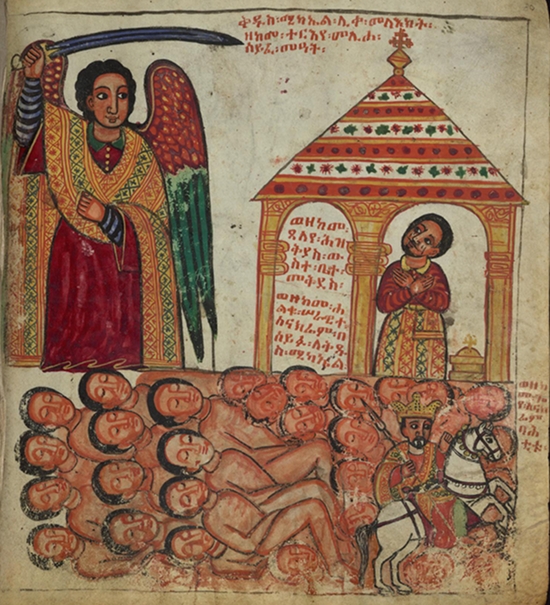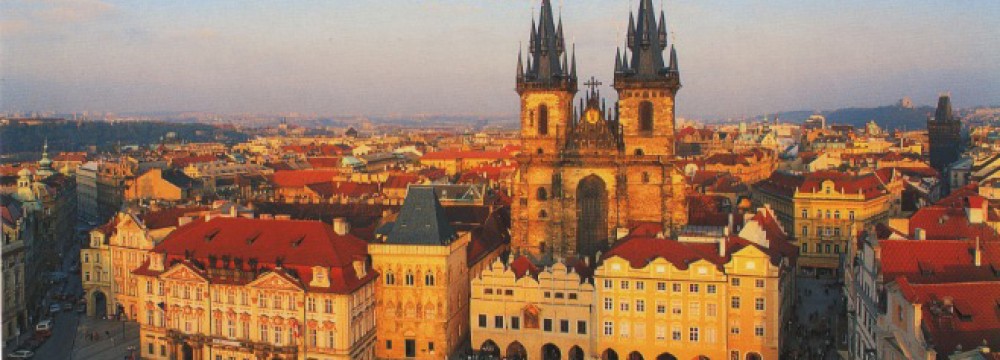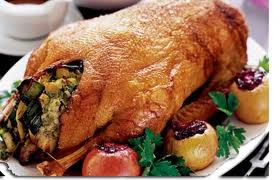
This 17rh century Ethiopian manuscript illumination shows the Archangel Michael helping Hezekiah, king of Judah, defeat Sennacherib of Assyria.
Michaelmas, the feast of Saint Michael the Archangel (also called the Feast of Saint Michael and All Angels) is a day in the Western Christian calendar which occurs on 29 September. Because it falls near the equinox, it is associated in the northern hemisphere with the beginning of autumn and the shortening of days. In medieval England, Michaelmas marked the ending and beginning of the husbandman’s year.
The Archangel Michael is the greatest of all the Archangels and is honoured for defeating Lucifer in the war in heaven. He is one of the principal angelic warriors, seen as a protector against the dark of night, and the administrator of cosmic intelligence. Michaelmas has also delineated time and seasons for secular purposes as well; in the United Kingdom and Ireland, “Michaelmas term” is still the first quarter of the academic year.
On manors, it was the day when a reeve was elected from the peasants. Traditional meal for the day includes goose (a “stubble-goose”, i.e. one prepared around harvest time) and a special cake called a St Michael’s bannock.
According to an old legend, blackberries should not be picked after this date. This is because, so folklore goes, Satan was banished from Heaven on this day, fell into a blackberry bush and cursed the brambles as he fell into them. In Yorkshire, it is said that the devil had spat on them. According to Morrell (1977), this old legend is well known in all parts of the United Kingdom, even as far north as the Orkney Islands. In Cornwall, a similar legend prevails, however, the saying goes that the devil urinated on them.

